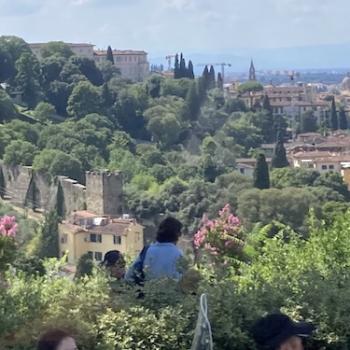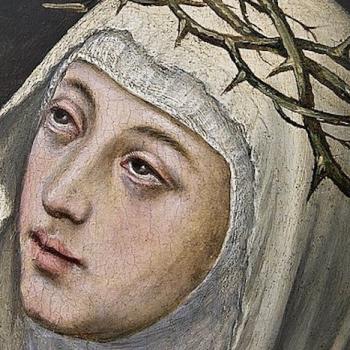
What is a church? Let’s consider it specifically: the particular communities where many of us gather on Sunday mornings. What is that? What do we imagine that we’re doing when we go there?
Meaning and Voluntary Gatherings
A conversation with a friend this week has me thinking about this question in a new way. Churches, my friend Rich says, are civic organizations. That is, they are voluntary gatherings which help generate meaning for those who gather. The non-compulsory character is key to the meaning, in fact. It is in part because we are under no governmental obligation to attend, and attendance will not directly put beans on our table, that these gatherings become meaningful in the way they do.
Not that obligatory or financially motivated gatherings cannot create meaning too. But freely chosen community creates meaning in a unique way. In it, we come to see ourselves as more than homo economicus or homo civicus–that is, as people whose highest calling is either citizenship or financial wellbeing.
So that’s what all civic organizations are. But what is that noncompulsory meaning-making gathering that we call a church?
I want to suggest that, amidst all the important things we could say about church, at the heart of it all is revelation. God desires to show Godself to us, and we can attune ourselves to this display. A church is a gathering which, through song and prayer and sermon and sacrament, pays attention to the self-revealing God.
Charged with Grandeur
My colleague Claire Colombo is currently exploring the poetry of Gerard Manley Hopkins as a particular window on this attunement. Hopkins’s own relationship with the church, and with formal theology, was complex. Claire thinks that his poetry becomes his way of attending to revelation despite or beyond that fraught relation with the theological world.
One of his most famous poems opens with the line “The world is charged with the grandeur of God.” That’s a happy enough beginning, and it sounds as if we’re going to be treated to a verse about this omnipresent grandeur.
But it quickly takes us into less friendly confines. This grandeur oozes in the soil we, oblivious, walk on.
And all is seared with trade; bleared, smeared with toil;
And wears man’s smudge and shares man’s smell: the soil
Is bare now, nor can foot feel, being shod.
Recall what Rich says about civic gatherings. It is all too easy to lose our curiosity about a meaning not confined to economics. Hokpkins’s characters here wear thick soled boots, insulating themselves against the divine grandeur as they trudge off to labor for their survival.
Deep Down Things
Still, our lack of attention does not drain the charge. Even while we walk through life, oblivious,
There lives the dearest freshness deep down things;
And though the last lights off the black West went
Oh, morning, at the brown brink eastward, springs —
Because the Holy Ghost over the bent
World broods with warm breast and with ah! bright wings.
Hopkins poem offers, for me, a brief apologia for church attendance. (What a strange line that is to read back over!) “There lives a dearest freshness deep down things.” He’s left out the preposition there, as poets are wont to do. Deep down in things there is a freshness, yet the sorts of creatures we are make us prone to miss it. The dear freshness becomes a ground to trod on as we work, as we plan, even as we suffer from life’s griefs and tragedies.
What if there was a volunteer gathering of humans in which all we did was remind each other of the divine truth that lies “deep down things?” That the very soil under our feet is alive with God’s electricity? That even when the world grows dark, the Holy Ghost bends over a suffering community in south Texas?
What Happens at Church
This is what is means to be a church. We gather, “in awesome wonder,” as the old evangelical hymn says, to pay attention to the grandeur of God.
We do this in all sorts of different ways, in different denominations and styles of worship. In the particular churches and seminary chapel I attend, we chant the Psalms, stand for the gospel, and listen to readings of the letters of Paul and the history of Israel. We look one another in the eye and said the word “peace.” We sing poetry that our ancestors in the faith put to music. We pay attention to a sermon, stand again to say what we believe, and then wrap our petitions and gratitude into the whole. Near the end, we walk forward to involve ourselves in the sacrificial love of Christ.
And before and after, we say hello, and have a bit of small talk and maybe a coffee with those who have gathered with us. We ask about the week, the work, the kids, the sick parent. I suspect the glow of worship extends over this small talk. I think we’re paying attention to the charged earth as we pay attention to one another’s lives.
We do this again and again, forming habits of attention. What we find as we do it is that meaning emerges. Coming home from church, I find myself noticing, even if I don’t notice how I began to notice, the awesome presence of my God deep down things.










